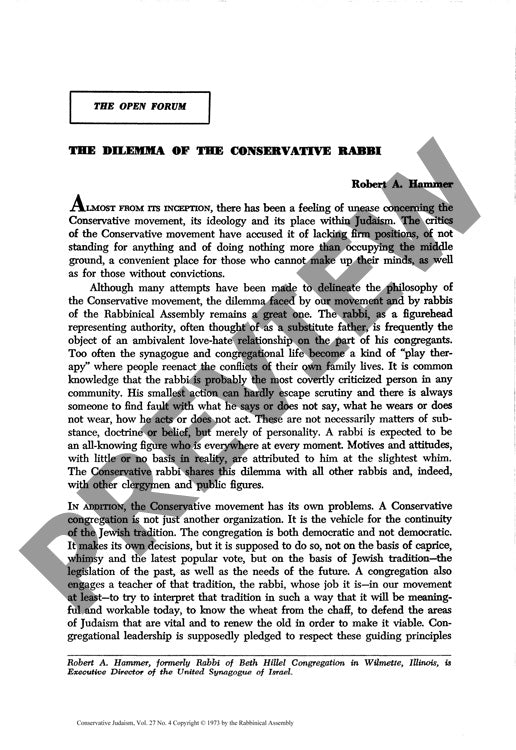Dilemma of the Conservative Rabbi
Couldn't load pickup availability
Conservative rabbis navigate an increasingly precarious balance between traditional Jewish law and modern congregational demands, creating institutional strain that threatens the movement's cohesion and identity. Through qualitative analysis based on observational data and professional experience within Conservative Jewish communities, a fundamental tension emerges between halakhic commitment and contemporary congregational expectations. Unlike their Orthodox or Reform counterparts, Conservative rabbis face unique pressures as congregants often resist traditional religious standards, leading to widespread variance in halakhic interpretation and practice across communities. This inconsistency undermines rabbinical authority and creates competing standards between congregations. While some communities have developed innovative solutions, such as integrating professional family counseling services using congregation members' expertise, the movement-wide challenges persist. Without establishing clearer boundaries and more consistent religious standards, Conservative Judaism risks losing its distinctive position between tradition and modernity. The findings reveal the broader complexities of denominational identity formation and religious adaptation in modern Jewish communities, suggesting that institutional reform is necessary for the movement's long-term sustainability.

More Information
-
Physical Description
-
Publication Information
Published 1973
ISBN
-
Publication Credits
Reuven Hammer

